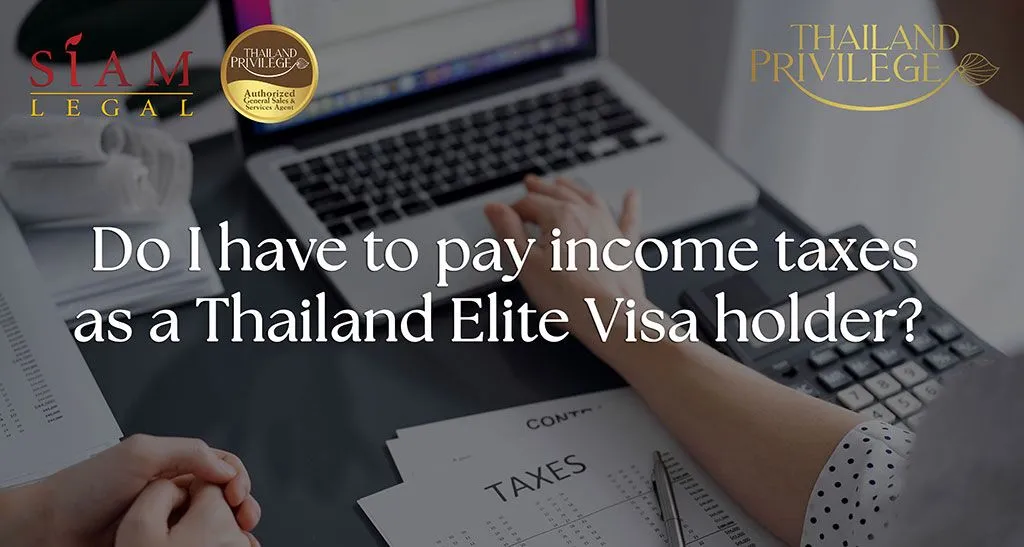If you hold a Thailand Elite Visa, reside in the country for over 180 days, and earn foreign income from overseas, you will be liable to file a tax return. This article explores your potential tax liabilities while on a Thai Elite Visa.
Tax Residency in Thailand
Thailand determines your tax liability as an Elite Visa holder based on tax residency. If you reside in Thailand for 180 days or more within a calendar year and have been receiving income from overseas, you will be considered a tax resident and subject to Personal Income Tax in Thailand (PIT).
Thai Tax Rates and Filing Date
Thailand uses a progressive tax system, with rates increasing alongside income. The tax-exempt threshold for individuals is 150,000 THB per year, and the highest tax rate is 35% for income exceeding 4 million THB. If you are deemed a tax resident, you must file your Thai PIT returns by March 31st of the following year.
Taxable Income in Thailand
The Thai Revenue Department taxes income from various sources including wages, salaries, royalties, dividends, interests, professional services, construction work, and other unspecified activities. Unspecified activities can encompass investment capital gains, pensions, and rental income.
However, certain categories of income are exempt from PIT. These exemptions include gifts below a designated threshold, inheritances, and scholarship funds. Additionally, transfers between your personal bank accounts and pre-existing account funds (held before January 2024) are not considered taxable income.
Thai Tax Exemptions and Credits
Thailand has established Double Taxation Agreements (DTAs) with many countries to prevent the taxpayer from being levied twice on the same income by the governments of their home country and the host country they’re residing in. These agreements also have the power to clarify which country has the primary right to tax certain income types. Depending on the origin of the income, specific income categories might be exempt from Thai taxation altogether if the relevant country has a DTA with Thailand.
In addition, you might be eligible for tax credits that offset your Thai tax liability. For example, some DTAs exempt retirement pensions already taxed in the source country. Tax credits, on the other hand, allow you to deduct foreign taxes already paid from your Thai tax bill, effectively avoiding double taxation.
Thailand’s tax system also offers various deductions and allowances to reduce your tax burden. For example, personal allowances are automatic deductions based on your life circumstances such as if you have children or are taking care of other dependents. Additionally, you may be eligible to deduct contributions to approved retirement mutual funds, qualifying charitable donations, and certain insurance premiums.
Tips for Thailand Elite Visa Holders
Do your best to track the amount of time you spend in Thailand, so you know your tax residency status. You should also try to maintain detailed records tracking all asset transfers into Thailand and be sure to use your available allowances and credits to your advantage. Also, make sure you are aware of the other Thai Elite Visa Cost that you will be responsible for.
As Thailand’s tax laws are so complex, the best thing you can do to optimize your tax burden is to seek professional assistance. Siam Legal’s seasoned tax experts will ensure you’re maximizing all available benefits and minimizing your burden. Don’t hesitate to reach out to learn more about your tax liability on the Thailand Elite Visa.








































